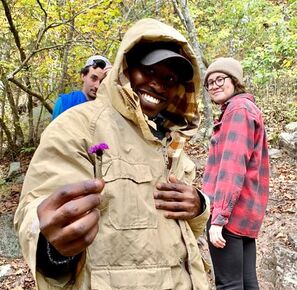 Mtipe Koggani, DAH 8.0, Fall Retreat 2020 Mtipe Koggani, DAH 8.0, Fall Retreat 2020 This song by Hezekiah Walker, “I need you to Survive,” explains everything about what I find rewarding about my placement site. I serve at Christ Church Cathedral as well as the Office of the Bishop. From the day I started serving with them, I have had the feeling of acceptance and love. There might have been some differences between us, but they accepted me for how I am. I’m learning and make mistakes, they nicely correct me. I missed a meeting or two, they understood me. I have been allowed to attend some meetings and meet people that I never thought I would. Dean Kathie is one of the priests in the diocese who has incredible experience in ministry and in church work. As a dean of a Cathedral, Dean Kathie has a very tight schedule, especially with what is going on right now with the pandemic, yet she and Janis, in the diocesan offices, have opened doors for me and they have always been available for me. To me this is nothing other than love, the love that Jesus taught us. Among other things, I have led Adult forums, Morning Prayer and participate in the Sunday service at my placement site. In doing all this I have felt love from the members of the Cathedral as well. I would like to end this reflection by quoting the 27th Presiding Bishop of the Episcopal Church, the Most Rev. Michael Curry, “If it’s not about love, it’s not about God.”
0 Comments
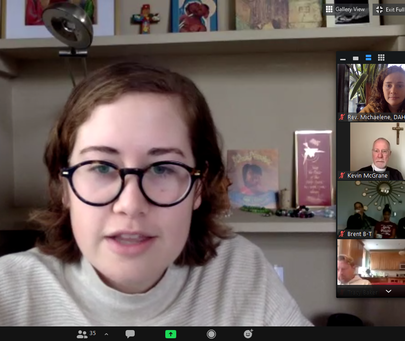 Sermon from October 25, 2020, at St. John's - Tower Grove in St. Louis, MO. Given by Corps Member Maddy Bishop Good morning, everyone! My name is Maddy Bishop and I am a corps member at Deaconess Anne House. Following an internship at Christ Church Cathedral in the summer of 2019, I joined this program in January of this year, getting about 6 weeks of time here before COVID hit. Yet, even with COVID-19, and all the curveballs that it has thrown, I have really come to love this city. The people of St. Louis and the Episcopal Church community here have taught me a lot about how to love my neighbor. This summer, in the wake of George Floyd’s murder, I joined folks from all across the country in protesting police brutality. There were many chants chanted that night, but there was one chant in particular that really struck me. As we walked down Euclid in the Central West End, folks standing on their balconies watching us walk by, we chanted “out of your homes and into the streets! Out of your homes and into the streets!” I found myself both choked up and deeply convicted. Sure, I was in the crowd. But in that moment it felt like the story of Jesus calling out to Peter in his fishing boat saying “Come, follow me,” and I was being asked to drop my metaphoric nets of individualism and comfortability and give myself completely to Jesus’s ministry, one that is already happening out there in the streets. This crowd of protesters, in the streets demanding justice, taught me a little bit more about how loving my neighbors means getting close and getting involved. I was talking with my friend Will the other day and he said, “If you were to ask me what Jesus was all about, I would probably reference these verses. They are classic Jesus material.” These are some of Jesus’s most famous words, invoking us to love God and love people. But what does that even mean? What does it mean to love God with all my heart, soul, mind and strength? What does it mean to love my neighbor as myself? Will is right. These verses are classic Jesus, but they are also classically used as vague Christian platitudes. I see unhoused folks forcibly removed from underpasses by St. Louis city government. Every day I drive by a whole block in my neighborhood that has been completely leveled to dirt. What was once filled with 100 year old homes that belonged predominately to black folks, was made imminent domain and bulldozed so that a new Geo-spatial government unit could be built, displacing countless families who had lived there for generations and furthering the gentrification of the North side. Just this week, another beloved business in St. Louis has closed due to COVID-19. One of the few remaining LGBTQ+ bars that served as a place of safety and refuge has closed for good. So what does it mean for me to love my neighbor when I live safely and comfortably in Episcopal Church housing but drive by the same folks asking for money at a corner in my neighborhood? What does it mean for me to love my neighbor when every day I see the effects of racist redlining policies that have segregated the city and disproportionally affected people of color? I could go on. The list of injustice in our communities, cities and nation is long. There are no easy answers to many of these complex issues, but I believe that Jesus’s call to love God with every fiber of our being, and to love our neighbors likewise, is a call to getting invested in these hard questions. These commandments are a call to specificity in loving our neighbor. We are to orient our lives Godward, and in doing so, Jesus moves us to address the injustice we see all around us. Perhaps Jesus knew that these commandments left a lot up to interpretation and personal experience, maybe he knew that the best way to teach us was by modeling for us how to love God and love our neighbors. Jesus got very specific. Jesus didn’t write off the prostitute, nor begrudgingly dine with tax collectors. He made specific choices about who he spent his time with. Jesus lived his life with the “sinners” and the outcasts, the ones with whom religious authorities marked as unclean and with whom political authorities economically exploited. Jesus overturned the tables in Matthew 21 not out of a random bout of frustration, but in anger at the way the temple was being used as a place of scamming women. Women who were required by religious law to buy sacrificial doves in order to be made clean after giving birth. Jesus saw the way the money changers were raising the prices on these doves, Jesus noticed the systemic exploitation that was happening, and because he was living among the people and watching how It affected them, he sought to cleanse the system of its evil practices. Jesus got specific. In a few months, we will celebrate the Incarnation, the event in which God became one of us, the moment when God became human and dwelt among humanity. God’s love for us became manifest in the Incarnate Christ, who in an act of solidarity with the poor and dispossessed, came and dwelt among the least of us. I can’t help but think of the chants to “get out of your homes and into the streets,” and think of Jesus calling us out of our comfortability and into the places where God’s liberating love is already at work. Answering that call is scary and one that makes hard pressed demands upon our lives. God’s love got close in Jesus where he not only cared about the individual needs of people, but the systems that exploited them. So, our love for others must involve us getting close and invested, not only in service to others, but in working to end violent systems of injustice. I find comfort in Jesus, whose self-emptying, whose Incarnation and life lived among humanity, gives me the courage to open myself to the Spirit’s promptings and live as a Christian, a “little Christ” in the world. To love our neighbors, is to love God. The righteousness that grows from loving God with all our hearts, minds, and souls, is intrinsically connected to the justice that comes when we are loving our neighbors and being in relationship with them. Raj Nadella, a professor at Columbia Theological seminary said, “One cannot be in right relationship with God unless one does everything possible to be in right relationship with one’s neighbors as well.” Loving God with all our mind: studying scripture and letting it form and shape our lives Loving God with all our soul: worshipping God and praying for others, (even our enemies) Loving God with all our heart: being close to, and in mutual relationship with others, especially the least of these; All of this is in a symbiotic relationship with loving our neighbors. It is all one in the same. As theologian Cornel West said, “Justice is what Love looks like in public.” AMEN. 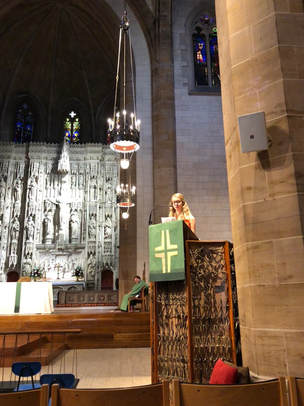 Sermon from June 3, 2018, at Christ Church Cathedral in St. Louis, MO. Given by Corps Member Rebecca Cole Hi everyone! My name is Rebecca, and I am one of the current corps members at DAH, and I am so pleased to be with you all today. Starting summer before going into 7th grade I was lucky enough to get to go to a week long Episcopal Youth conference each year at Kanuga, a conference center outside of Hendersonville, North Carolina. It was always an extremely important time in my faith- a time to go to the mountains and out of the swamp that my hometown of Mobile, AL was in, and, as is important to many middle and high schoolers, a chance to be away from parents. Sorry Mom and Dad. We had relative freedom to explore the conference center, and it was so exciting to feel like I had at least a glimpse of life after turning 18. If you have been to an Episcopal summer camp or youth conference, you have likely heard the hymn “Here I am, Lord” which is taken from both Isaiah chapter 6 and today’s reading in Samuel. We did this hymn little differently than many places do. The last night of the conference, we would hold a service, and we would play this hymn at the end, and everyone would take off their shoes, jump up and down, and scream the lyrics at the top of our lungs, either running towards the front and jumping around the altar, or even up and down on the pews. I know what you must be thinking, the conference center loved us. It gets me thinking about how adament both Isaiah and Samuel were in their “here I ams”. Three times Samuel came running to Eli and said, “here I am, for you called me.” It reminds me of the times you have a conversation with someone and maybe they mumble their words, or maybe like me you don’t have the best hearing in the world, and after of couple times of asking “what did you say?,” you give up and kind laugh and say “mmhmm” or “that’s right.” I don’t know if this is a modern phenomenon, or if we are just trying to be polite by not asking people to repeat what they have been saying 5 times, but 9 times out of 10, whatever you come up with as a response is not at all an appropriate reply to whatever it is they are saying. I think it is important to note though, that it seems to me that by the third time, Samuel is probably getting pretty annoyed. he starts out running toward Elil and saying “Here I am” and then transitions to simply getting up saying, in what I imagine is a rather exasperated voice “Here I am, for you called me.” Annoyed as Samuel might be, he doesn’t give up. He doesn’t shrug it off. He trusts himself, and he is confident in asserting “I heard that” rather than just ignoring. I think it is important to note though, Samuel doesn’t figure this out on his own. Samuel hears the call, but he cannot figure out who it is coming from until Eli helps him out. At Deaconess Anne House, we are very lucky in the fact that we get to meet with a spiritual director. If you are not familiar with spiritual direction, which I was not until this year, it is an ancient practice in which the director sit with the directee, and helps them deepen their spiritual life as well as figuring out how God is working in their lives. A lot of what we talk about in Spiritual Direction is “nudges” from the Holy Spirit. Things that you may not realize were God’s hand until you name them out loud. When I was in college, I volunteered at a crisis hotline. During our training, the director of the center said something that has really stuck with me. People are experts o own lives: At the crisis center, we don’t tell people what to do or which decision to make. First of all, if you tell someone what to do, if they are anywhere as much of a contrarian as I am, their knee jerk reaction is not to do it. People usually already know the next steps. Our job is to help nudge them to name those things out loud. So that instead of saying “I know you’re failing a class so just to your professor and talk to them about how to bring your grade up.” You ask them, “if you had a friend who was in your same situation, what would you advise them to do?” Many of the times, people will name a course of action to help them cope with the situation they were in. It is amazing how much kinder people treat their friends than themselves. They knew the answer all along, they just needed someone else nudge them name what they already knew. Similarly, Eli had to nudge Samuel- even though Samuel was the one to hear the voice, Eli had to talk to him about who it was from He had to guide him to help him realize it was not Eli to whom he should be saying Here I am, but God. I suppose I am trying to make the point we have to constantly remind one another that God is working in one another’s lives. Not in a trite or dismissive way, but truly sitting with one another and allowing each other to name aloud where they are being called, and helping one another say “here I am” to God wherever He calls us. Amen Thoughts from 2017-18 corps member Kevin Rysted. Begin Reflection Log: 31st minute of the 22nd hour of the 3rd day of the 4th month of the 19th year of the 1st century of the 3rd millennia of the Common Era.
"I feel that I am less productive on a day-to-day basis while in St. Louis. I feel my own need for outward accountability starting to manifest more seriously. I hope that God takes this moment to act because I will not resist change much longer. I could feel myself returning to my beloved self as I returned to Oklahoma over Spring Break--it is tough to love and accept yourself when your better self is so close by. Here is my attempt at a poem that expresses community's wins: fear of rough water brine and wave have damage shown storm gives sights anew Let it be known that this poem of my month is for outward digestion by my lovely audience as well as for inward digestion for my spiritual health." End Reflection Log: 14th minute of the 23rd hour of the 3rd day of the 4th month of the 19th year of the 1st century of the 3rd millennia of the Common Era. Lenten reflections from 2017-18 corps member Rebecca Cole. I may have gotten a little over ambitious when it came to Lent this year. I figure that since this is a year devoted to faith development, I should do all of the things I have considering giving up in the past. So I gave up makeup. And Netflix. And meat. And social media.
I had an idea that since I would have so much free time on my hands, I would magically fall into doing things I was aspiring to: reading more, praying more, exercising more. However, I began to “cheat” with these things. (The Bachelor is on ABC.com and not Netflix right?! #teambecca) That being said, I did convince myself to pray more and read more scripture than I usually do. I found to my surprise that the more I did it, the more I had a craving for it. But still, it was often easy to convince myself not to. It reminds me of exercise- the 15 minutes before while you are convincing yourself to do it are the worst. It is a friendly reminder to push through the excuses, fear, and, frankly, laziness that often inhibits my prayer life. Some food for thought from our 2017-18 corps member, Rebecca Cole.
Over the last few weeks, and especially in this last week as part of the beginning of Lent, I have been thinking about what kind of Christian I am called to be. During one of our Monday night Eucharists, the priest expressed that Lent is not a time simply to be somber, but to shed all of the extra “pretty” things in order to focus on what is important. This has led me to think about the people in my life who have most influenced my faith. It occurred to me how lucky I am because of all the different ways I have seen people display being a follower of Christ. Some have done so through their careers, others in volunteer work, and still others in their very presence when they interact with others. However, it has also lead me to question different stereotypes and arbitrary lines I have drawn around groups of Christians- the SEC college ministry group Christians, the Christians who often speak about being saved, the Christians who identify as Christian but do not actively participate in organized faith, and those who I will call “Facebook Christians” who often have a Cross with an American flag background as a profile picture. I think one of my biggest faults is that I identify more as “Episcopalian” as I do “Christian.” Given the depth and breadth of violence that has been done in the name of Christ, I do not think that tendency is totally unwarranted. Still, beyond the fact that the Episcopal Church has been complicit, even active, in oppression, it is still fundamentally problematic to dissociate myself from those that also consider themselves followers of Christ. Kevin preached on our retreat in Colorado! Read his awesome sermon below.
Lectionary Year B: 4th Sunday after Epiphany Scripture Covered:
Howdy! My name is Kevin Dean Rysted, and I am a member of the Episcopal Service Corps. I am currently living in community at the Deaconess Anne House in Old North, St. Louis, MO. Oklahoma is where I grew up and went to college. I have always been active in the Episcopal Church, but am comfortable that I also have desire to worship God beyond where the Episcopal Church is usually present. The Deuteronomy passage declares a promise: a leader, strong in the Word, will rise up amongst you to lead you. Not just does God promise that the people will be led by one of their own, but goes on to say that the leader’s fate is tied to the group. Where they suffer, the leader will not prosper; where they prosper, the leader will not suffer. It is sometimes tough to see this promise in verses 18-20. However, this commitment is extremely crucial to understanding the true form of “Obedience, or Fear of God,” that God demands of Israel. Specifically, understanding that this was said right before the coming of Joshua--a blessed conquering prophet that brought Israel (or at least most tribes) into their promised land. No longer (so they think) will they be ruled by oppressors or starve in a desert. Therefore, if Joshua’s prophecy was false, it would mean direct pain for entire groups of God’s people. Similarly, if the people denied Joshua’s prophecy it would mean taking more than their tribe’s portion or spoiling the promise to other tribes. One last note, I do not believe that this passage just predicts Joshua. Read the Psalm 111:5-6, 9: these lines further capture the sentiment I understand in the Hebrew 'Fear of God’ with another concrete, political-economic covenant. It is not just a promise to be kind to Israel, or to be merciful in some far-off, mystical future judgement. It is a contract of Equity for a group of generationally oppressed people trying to figure out how to rule with God. In the wake of the Babylonian empire being defeated, and the Jewish people’s return to Jerusalem, this psalmist wants to remind the people of how society works under the One True God. The 1 Corinthians passage is a staple in my view of Christian ethics, but I will instead turn to a transitory line that might not have been intended to be taken out of context. However, I think it is in good taste with the other parts of the passage: “”Knowledge” puffs up, but love builds up.” This idea fits so well into the sentiment expressed in authentic conversion experiences that I have heard testimony about. It is not 'knowledge’ of God that makes one believe, but a Grace filled Love that transcends something as fickle as 'knowledge’. It is not simply knowledge of someone’s story that builds relationship, but love. Finally, in our passage today from Mark, we get to see the rest of these passages through a lens. I want all of us to consider this passage in the shoes of a typical person in the synagogue. Jesus models for us the ideal for what living in Love and not Knowledge looks like! He goes into synagogue and teaches, however he's just some country hick from Nazareth (What good thing ever came from Nazareth?). How can he know so much? Don't we know the only story we need to know about those rebellious, troublesome northerners?! ….. Immediately thereafter, Jesus goes and does what I call “weird”. He casts out demons without invoking the power of exorcism he's using. It's not, “... In the name of Solomon” or “... In the name of Elijah” but just a pure command. This is novel stuff. To top it off, Jesus followed in the tradition of Galilean rabbis by disregarding the strict rules of Sabbath. There are so many instances in this story where we can now see the iconoclastic message Jesus is presenting: y'all have made God way too much about 'Knowledge’ by forgetting the point of the covenant. God saves us. Remember 'Fear of God’ = love of neighbor. Now that we have reviewed our wonderful readings for today, which are so full of amazing content and diverse application, let me pose a question for brief contemplation. What should society look like for God's people right here, right now, in real life--your life? ...repeat... *after a short silence…. In my life, this question has meant that: First: I imagine what I hope the society of God to look like, not in some paradise devoid of the traces of familiarity, but in this context and world. Second: How am I delaying or denying the Kindom? I look for groups that I might be ostracizing by action or apathy. I look for direct mechanisms that I take part in that cause harm. Finally: I need to seriously figure out how I feel God already moving. Are there any leaders already present, is there momentum to grab ahold of? So, what does this actually look like? I will provide my answer, not because I think that it is inherently valuable, but that it might be useful as an example. I imagine my neighbors in Old North having a deep sense of belonging in the Deaconess Anne House community. On cold days, we gather around the campfire or huddle against the radiators inside. We break bread together and talk about anything. We give thanks for all of Creation responsible for bringing this food to our table. We praise God for a life well lived, and ask God to stay with us through the rough. We work hand in hand to expand our familial bond to new people and groups, pushing our circle wider. This mutualism also goes on to increase the productivity of our projects, yielding more reclaimed gardens, more local business, and less empty homes. I am delaying this vision by failing to properly engage neighbors where they are at. Specifically, I do not go into the southern part of the neighborhood too often, and I don't meet too many people from outside of a few blocks. Also, my prioritization of other activities takes me away from the neighborhood: my church, my job, my gym, and my grocery are all not in the neighborhood. I have not engaged people at their homes who might have limited accessibility or who are new to the neighborhood. Yet, have a neighborhood organization that is already doing amazing things to build up this neighborhood. We have a fierce leader, Jessica, who is looking at what the people of the neighborhood actually want in the form of any development. We have made a few friends that might get us involved with networks already present. There are a handful of churches that I could join in prayer with. There is already a spectacular gardening system, putting people who have never seen the food they eat growing in the soil, with a permaculture design course instructor and Master gardeners alike. The local business scene is resilient despite harsh economics at times. There are wonderful community events in our public spaces. I am gracious that there is an Episcopal Service Corps communal home in that neighborhood; because I honestly would have never wandered into Old North, much less called it my home. Simply put, there is a whole lot of steps that God has already helped guide if I pray with my eyes wide open. So once again, I want to turn this back to you and to the Word. We should not let knowledge of what a place is like, or the people who live there, but rather let love build up our relationship with the place and the people. We should follow in Jesus’ refusal to get bogged down by institutions (well intentioned I might add) that deny or delay our love of neighbor. Finally, we should look for how Jesus, the great prophet from among us, is already working around us and in us. AMEN Begin Reflection Log: 10th minute of the 14th hour of the 30th day of the 11th month of the 17th year of the 1st century of the 3rd millennia of the Common Era.
"I am feeling cautious of the changing seasons and wary of my own disciplines that help tether me to a greater sense of joy and productivity. My sleep schedule is tumultuous, my work-out schedule is nearly gone, my reading routine is absent, my Spanish lessons are few and far between, my eating habits are inconsistent, and my prayer life is less-than-desirable. These concerns have cropped up at different rates and have affected me to varying degrees, but all are worthy of mentioning. A negative result of this is that I am being much less intentional with the small moments, and am feeling at a loss for putting myself back on schedule. However, it is worth mentioning that controlled struggles, like this, can often help one grow more than when on cruise control. Responses to the prompts: 1. Something rewarding about community life Having someone to have silly conversations with 2. Something challenging about community life Being more than just there (checking in) 3. Something I did with the parish I attend Cooked Breakfast! 4. Something rewarding about work at my placement site Having a boss who is invested and trusts in me 5. Something challenging about work at my placement site Enter winter, exit Youth 6. A highlight of this month Thanksgiving celebration in Ft. Smith, AR 7. A goal I have for next month Maintaining a balanced workout routine 8. Something I pray or deeply hope for That I might find ways to enrich my relationships in StL(Triangle) 9. A new practice I’m engaging Basketball indoors at North City YMCA Let it be known that this is both a recapitulation of my month for outward digestion by my lovely audience as well as for inward digestion for my spiritual health." End Reflection Log: 18th minute of the 14th hour of the 30th day of the 11th month of the 17th year of the 1st century of the 3rd millennia of the Common Era. -Kevin One of my favorite parts of this month was attending Convention. I had never been to a Convention before, and I had no idea what to expect. We got to hear about a lot of the works that various parishes around the diocese are doing as well as hearing from various church leaders. I think the highlight was the youth lock-in though. Though I do not really consider myself a “kids” person, these older youths were hilarious and excited to be there. We played spoons, painted rocks with positive sayings, and did Compline. This experience reminded me of how much we can close ourselves off to new and fun experience because we think of ourselves as “not a BLANK person.” While I agree that knowing yourself and your strengths are important, it was a good reminder not to close myself completely off to things that I may not necessarily consider a “Rebecca” thing. -Rebecca
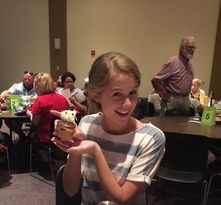 A post by Rebecca Cole, 2017-18 Deaconess Anne House corps member who works with Grace Hill Settlement House. It is often surprising to me how much I have to learn about something I have been immersed in my whole life. As a cradle Episcopalian, I thought that I had a general understanding of the Book of Common Prayer, church services, and history of the church. "Intentionality" is a big buzz word of Deaconess Anne House. It requires being actively engaged rather than assuming you will passively learn simply as a product of being in an environment. I have found myself constantly surprised at how much more there is to know. As silly as it may sound, one of the best parts of this year so far has been turning to a page other than Holy Eucharist Rite II in the BCP (often called the "dirty pages" because of how often it is used). It is remarkable how oblivious I could be about something that was part of my weekly routine for the last 22 years. This idea has also been reflected in Wisdom Distilled from the Daily: Living the Rule of St. Benedict Today that we are reading for discernment. In it, Joan Chittister discusses how we should not just pray when we feel like it, but rather make it as constant of a daily practice as brushing your teeth. This in conjunction with Morning Prayer has created a calm and steadying way to begin my day. Too often, I believe I’ve had a scarcity mindset about my prayer life. It has been a challenging but rewarding practice to consider prayer as essential to my day as eating breakfast and going to work. -Rebecca |
Categories |
|
Mailing address:
DAH c/o Diocese of Missouri 1210 Locust St. Louis, MO 63103 |
(c) 2014 - 2020 Episcopal Diocese of Missouri
|
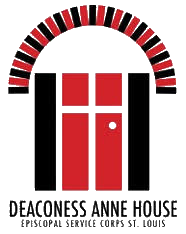
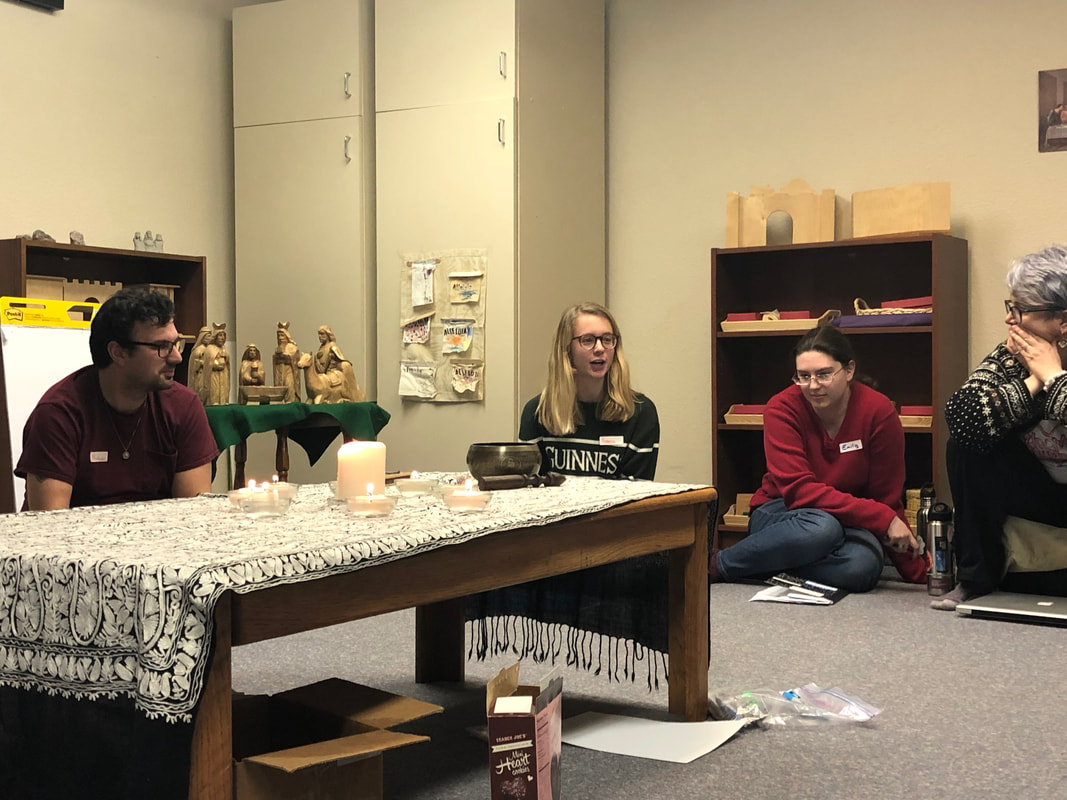
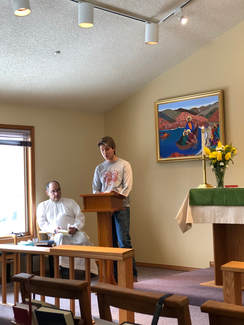
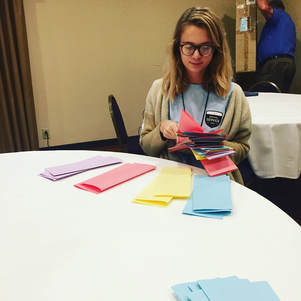
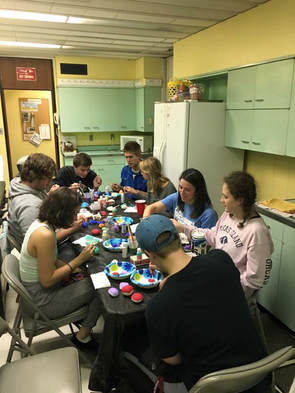
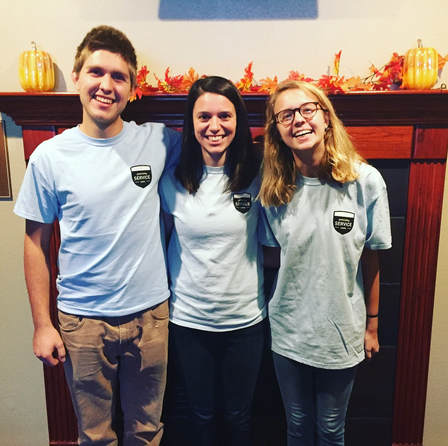
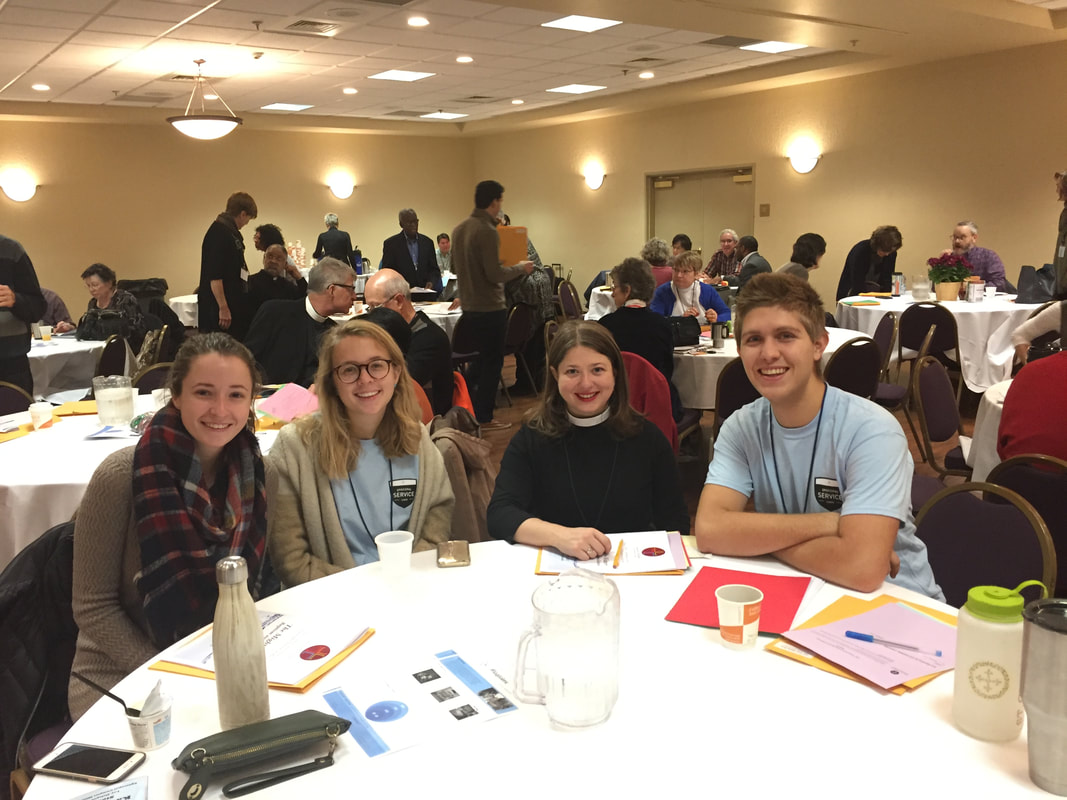
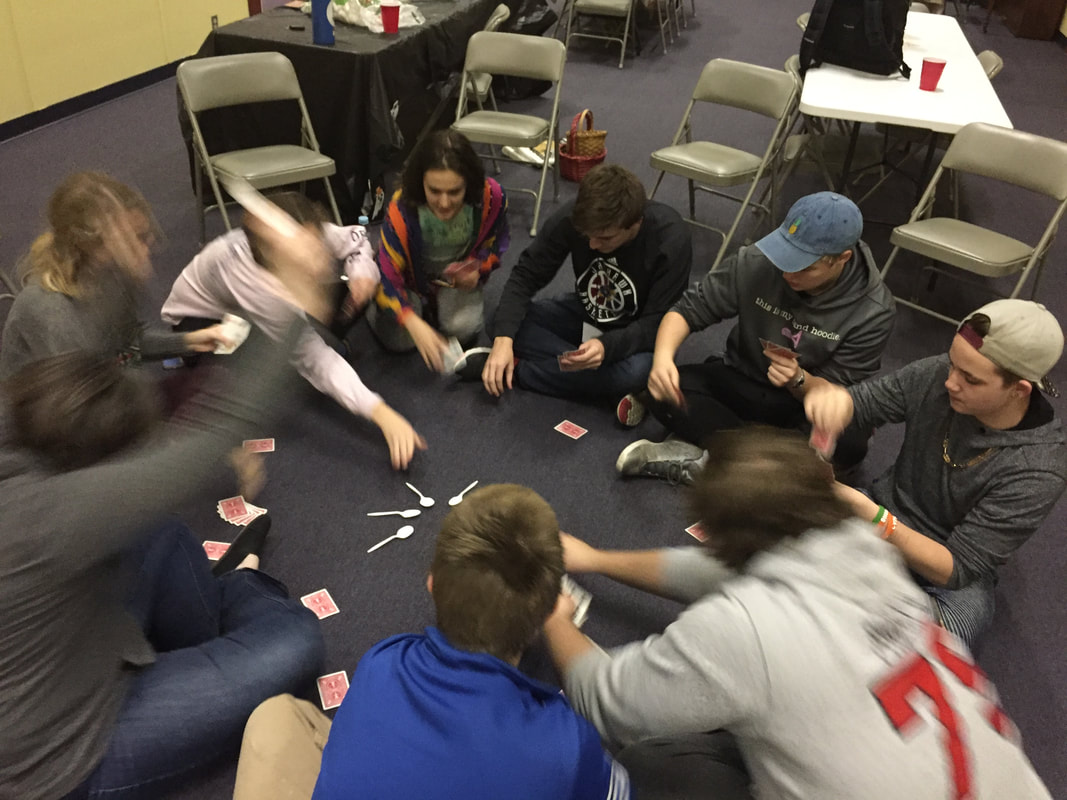
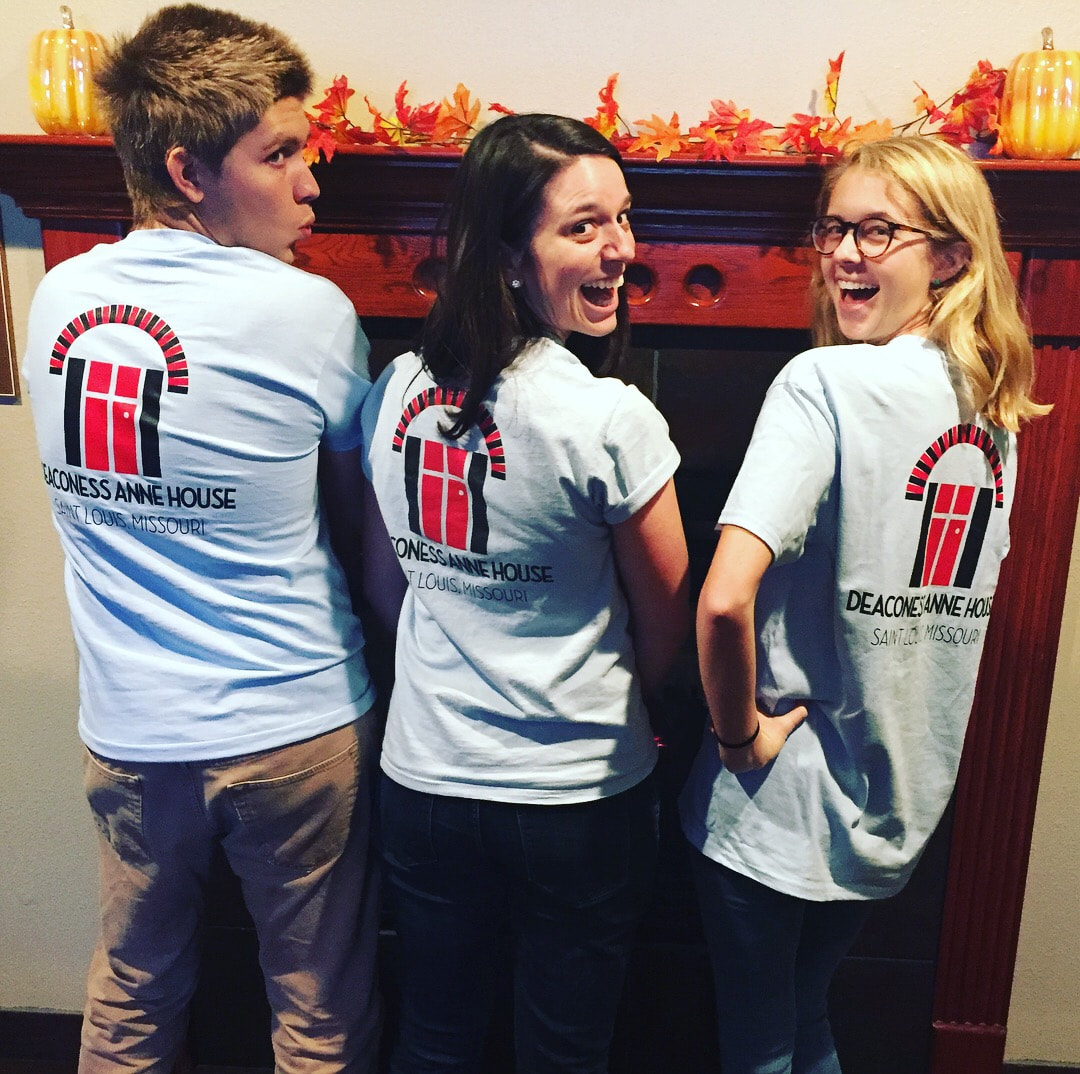
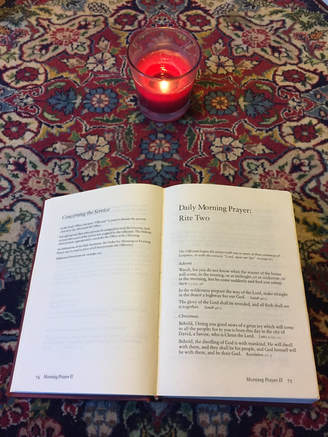
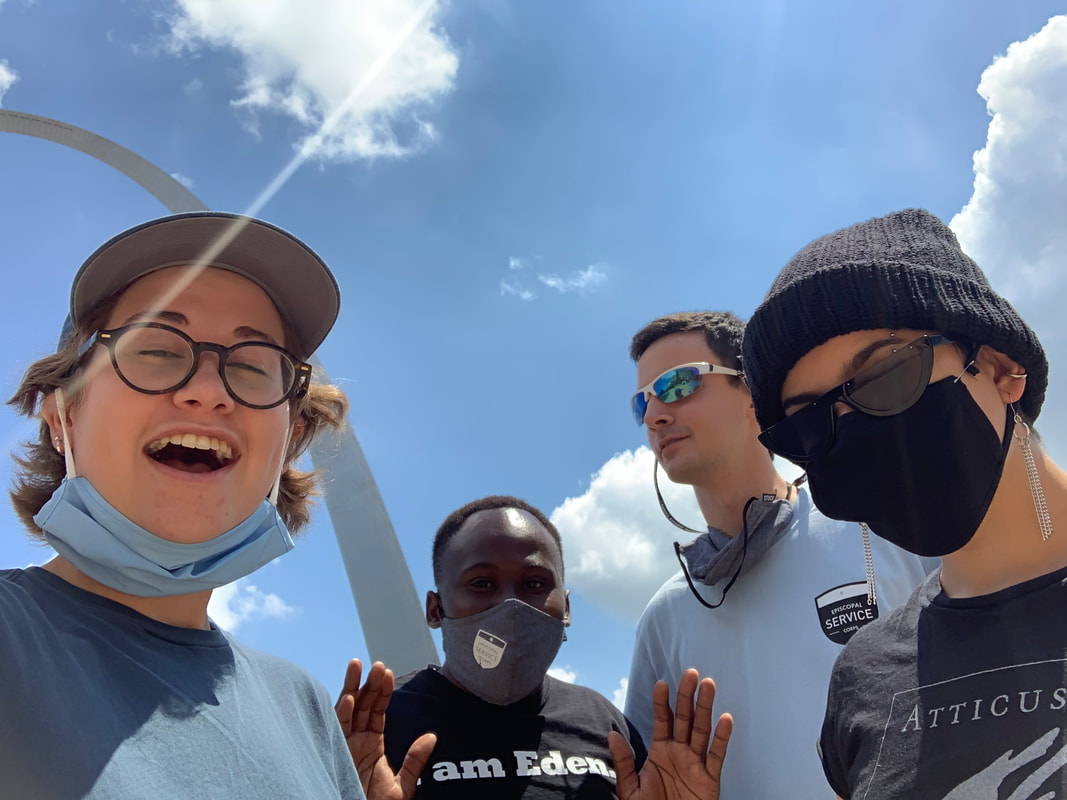
 RSS Feed
RSS Feed